Event Summary
Liverpool Development Update | Recover and build
Professionals working across Liverpool discussed how the disruptions of the past 14 months have affected the city’s residential and retail property markets, at this Place North West event.
Fractional sales, the housing crisis and the city’s suburban residents were among the many topics discussed over two panels at the Liverpool Development Update, sponsored by Pegasus Group and ITS and hosted by Place North West reporter Dan Whelan.

Panel 1 – Towards post-pandemic recovery
Iain Finlayson, estate director, Liverpool ONE
Bill Addy, chief executive, Liverpool BID Company
Nicola Rigby, principal, Avison Young
Alan Bevan, managing director, City Residential
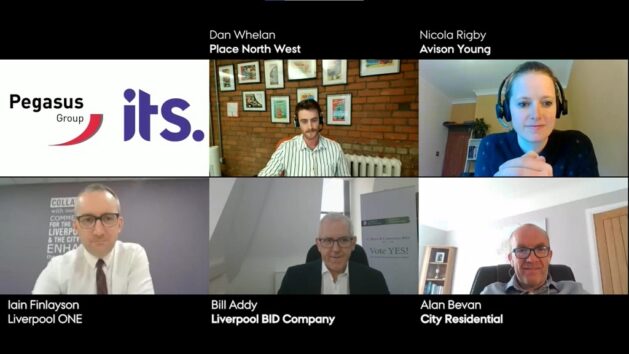
The panel kicked off with a look at how the city is recovering from the effects of Covid-19, and the turbulent string of events involving Merseyside Police’s Operation Aloft corruption probe and the subsequent Government-commissioned report into the operations of Liverpool City Council’s regeneration, property and highways departments, which found widespread failings that are currently being addressed.
Panellists agreed that the report’s findings, and action being taken to ‘clean up’ Liverpool’s property sector to attract high-quality inward investment, has so far had a positive impact on the city. Those working within it said they are optimistic that change is afoot and this will filter down into the types of property and regeneration schemes that are brought forward in the coming months and years.
“I’ve got every optimism about Liverpool moving forward,” Bill Addy said. The city needs to focus on what it wants its neighbourhoods to look like, he added, and the focus should be on improving the city for local people and those who live in the suburbs.
“Liverpool will start to do that in ways we’ve done in the past,” Addy said.
One aspect that needs to change, said Alan Bevan, is that around 90% of development that has taken place in Liverpool over the last nine years has been underpinned by ‘fractional’ sales, where projects are funded by selling flats off-plan to multiple investors in advance of the scheme being built.
“It’s depriving the city of what the market wants,” Bevan said. “We’re building the wrong type of stock.”
“I think it will turn at some point: Liverpool will get to the point where values rise to the level where better developers aim for the owner-occupier market.”
Bevan said has seen an increase in property sales over the last 12 months. “Suburbia has exploded,” he noted.
The city centre market, on the other hand, has been impacted by the cladding scandal, which has restricted supply and caused a nine per cent vacancy rate, according to Bevan. However, rent arrears are lower than anticipated at the start of the pandemic, largely thanks to the furlough scheme, he added. “Lettings have been tough.”
Now that the city is recovering from the pandemic, the discussion turned to further regeneration and development.
“The regeneration story going forward in Liverpool is about neighbourhoods around the city centre,” said Nicola Rigby.
These neighbourhoods need attention, she said – and development needs to prioritise social value.
“Any new development in the centre, the benefit has to be felt in those communities.”
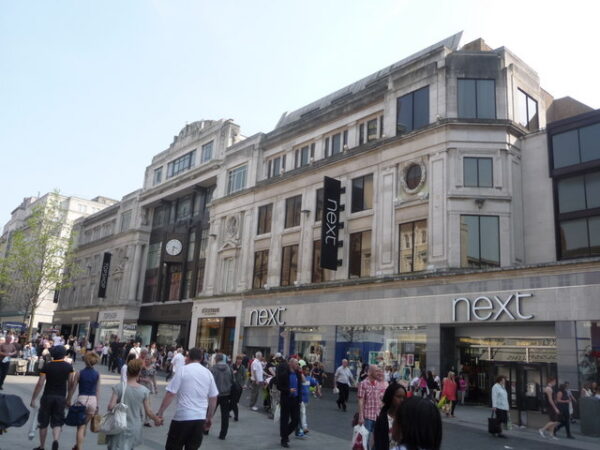
Liverpool is looking forward to retail rejuvenation post-pandemic
Another area of focus needs to be the city’s cleanliness and appearance, Finlayson said.
“Standards are not where I believe they should be. I’d be surprised if anybody would argue that case,” he said.
“All the component parts for Liverpool to be a world-leading destination are here, we just need to make sure we’re delivering them day by day.”
But first, the next 12 months will be about the city’s recovery, Addy reiterated. According to the Liverpool BID Company, the city’s visitor economy, which includes retail, hospitality and leisure, was generating £3.3bn year pre-March 2020, or £1.1 million a week, but footfall fell by 80% in March.
“We’re slowly building back up. We need to work towards a recovery,” Addy said.
Iain Finlayson said footfall at shopping complex Liverpool ONE has returned to slightly behind 2019 levels. However, the average spend per person is “extraordinary” due to pent-up demand. He partly attributed the fast recovery to the nature of the development’s open, outdoor space.
“My hope is we can start to open up properly. We need to rest, refocus and move forward.”
Panel 2 – Designing better
Quentin Keohane, director, Falconer Chester Hall
Garry Bowker, regional director, Vinci Construction
Darren Muir, principal planner, Pegasus Group
Lynn Haime, partner and head of Liverpool office, Matthews & Goodman
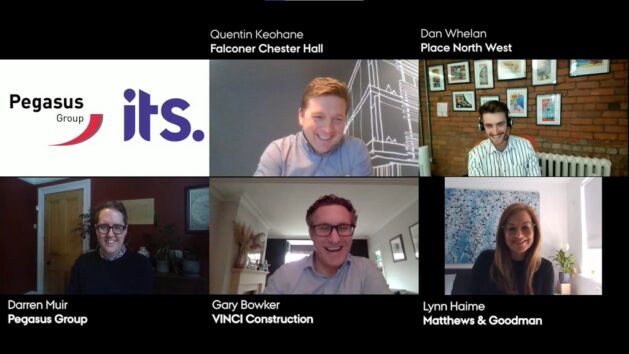
This panel continued to discuss the challenges around recovery and regeneration in Liverpool, focussing especially on the housing crisis, the slow-moving office market, and the ongoing tensions between the development community and the UNESCO World Heritage Site designation and the design restrictions it places on those wanting to build.
The panel started off by discussing the quality of architecture in Liverpool. There have been some examples of poorer quality architecture in Liverpool over the last few years, noted Quentin Keohane.
“We’re hearing from local authorities that design quality is fundamental,” he said. “We need good quality background buildings. Local authorities are taking the right actions to assure this.”
Garry Bowker gave an update on the Liverpool Festival Gardens land remediation project, which involves bringing the site to a useable plot of land that the Government agencies the National House Building Council and Homes England can buy into and bring forward new homes.
He said the programme will run to the middle of 2023, after which time the developer will start to progress the housing development in the second half of the year. The project is to deliver 1,500 new homes over eight years.
However, in the city centre, there’s an over-reliance on the apartment-led market, according to Darren Muir.
“While on paper Liverpool is not too far off meeting housing targets, it’s not delivering the right type of housing,” he said.
Keohane said he is starting to see bigger scheme proposals starting to warm up, and said it is important that planning officers have the resources to deal with these big planning applications.
“Downsizing high quality apartments is one area of growth we’re seeing,” he said. “There’s a shortage of high-quality apartments in the city centre – this is definitely an area for growth.”
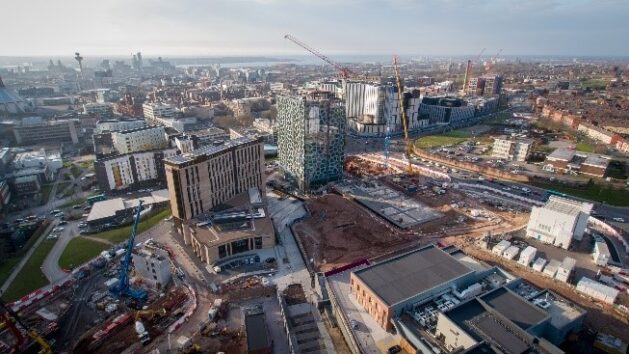
Regeneration district Paddington Village, featuring The Spine office block that opened last month
Muir talked about some of the driving forces of the housing crisis, which are being felt across the UK, including in Liverpool. One issue is the loss of council housing due to the Government’s Right to Buy scheme, which allows renters to buy their home from the local authority at a discounted rate.
“Even though we have developers providing a percentage of affordable housing, the amount of affordable housing in any year could still be negative because of losses of Right to Buy,” he said.
“Liverpool currently doesn’t have a standard of how much housing delivered needs to be affordable housing.”
The panel moved on to talk about the supply of grade A office space in the city, supply of which is lacking and this needs addressing, Lynn Haime said. Demand for this space will still be there after the pandemic, she noted.
“The million-dollar question is what people will be coming back to. The only thing that’s definite is that it won’t be the same as before. We’ve all been able to work from home and everyone acknowledges that that is possible, but we all agree the face-to-face element is still needed and wanted.”
Liverpool now has an opportunity to better link its talent pools to business space requirements, Bowker said, giving as an example the fast-growing Knowledge Quarter, including Paddington Village and The Spine office block, which opened last month.
“We’ve got some leading examples in life sciences and creative technologies that are going to demand some form of grade A office space,” she said.
“The key is to connect the requirements for workspace to the talent pools and the specialisms the city is developing.”


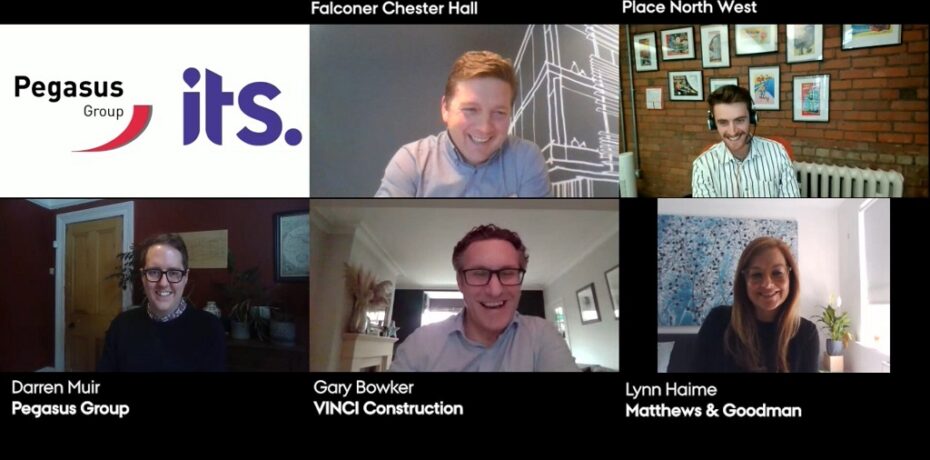
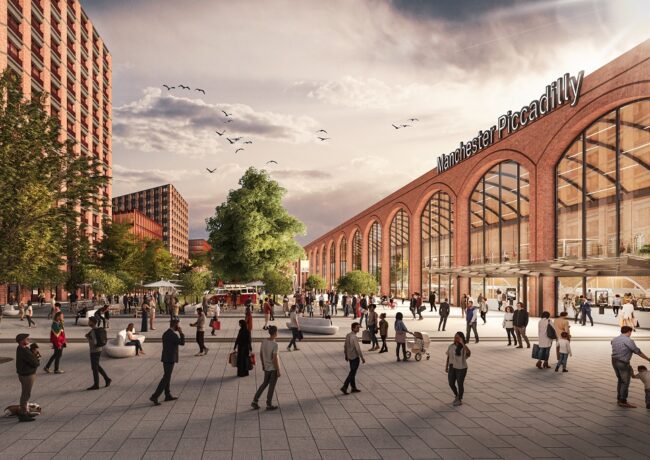
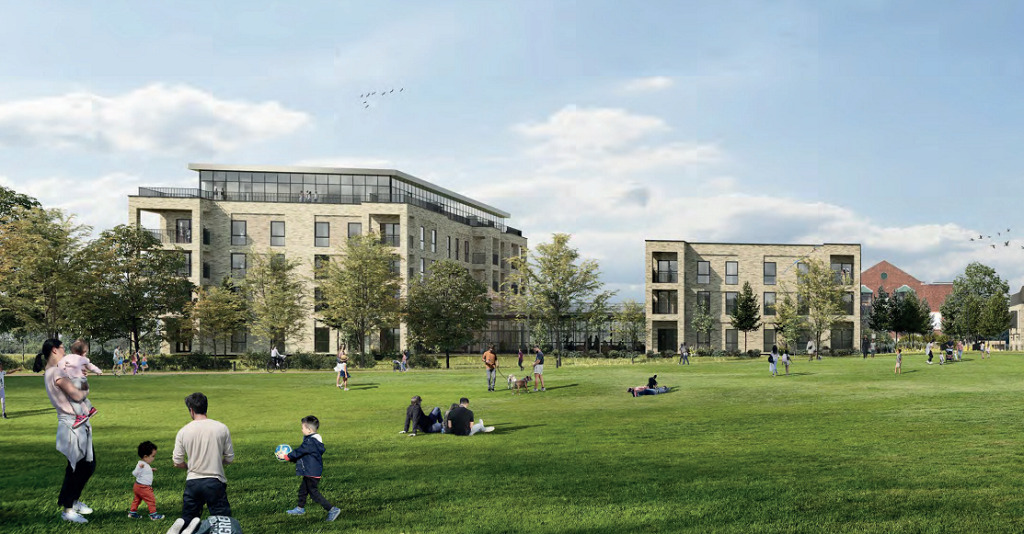
Liverpool has a majestic waterfront which we don`t make the most of in terms of high quality flats and leisure facilities, anywhere else would have scores of restaurants overlooking the river.
In addition Liverpool suffers ,like a lot of Northern cities ,having terraced housing with backyards and back entries,if only some way could be found of demolishing the alleys so properties have private town gardens, thus making these properties more attractive and valuable.
By Anonymous
“Another area of focus needs to be the city’s cleanliness and appearance, Finlayson said.”
Totally agree, the streets are grubby, litter is everywhere. The balance between the night-time economy and day-time economy is not being met in terms of cleaning. Something needs to be done about where people can eat takeaway food to reduce the amount of it and the litter discarded on the streets and in the historic docks.
The frequency with which bins are emptied needs to be increased and more spent on street cleaning.
Many will be visiting Liverpool for the first time this summer, the mess may put them off coming back!
By Anonymous
“While on paper Liverpool is not too far off meeting housing targets, it’s not delivering the right type of housing,” This is spot on. Affordable family housing, and housing for first time buyers, is the highest need across the city, but this is not what is being delivered.
The markets favour PRS apartments in the city centre, and high-end 500k housing in the suburbs, so this is what we’re seeing built. Solutions on a postcard please…
By Anonymous
The question of litter in the city has been a valid point for many years. There does not appear to be a concerted effort…or level of civic determination to systematically rid our roads of accumulated rubbish….when you consider some European cities who employ cleaners throughout the early morning hours to keep things clean….this is a problem that MUST be brought under control if Liverpool is to attract long term investment
By Tercol
With regards to street rubbish….people have to be educated and encouraged to dispose of litter responsibly…if that is not possible..then the problem will remain …look at major holiday destinations in Europe…note dumpster skips in the streets…watch how most people dispose of rubbish….it can be done….with an altered mindset
By Tercol
Preservation doesn`t mean there is no innovation. More historic sites, buildings and parks preserved and restored, instead of identikit offices like London, Manchester and Leeds etc.
By Bixteth Boy
Bold Street was cool last year but now it’s a littered, greasy mess. Really unpleasant actually.
By Anonymous